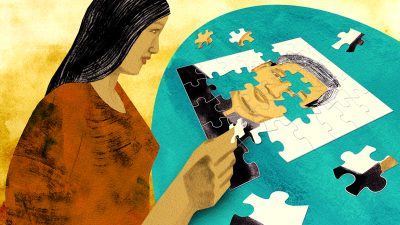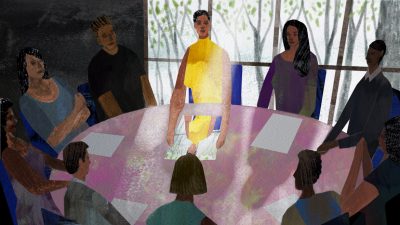People
How Rachel Khong Built The Ruby, a Coworking Community for San Francisco Creatives
“How can we lessen everyone’s burden and give ourselves more time to work on what matters to us?”
Speak of the Dead: Seeking the Stories of My Refugee Family
The first generation of refugees have the power of selective memory. Children like me learned early to tiptoe around our families and their traumas.
“The Community Is Hurting”: Why We Need to Talk About Colorism and Bias in Asian American Communities
It feels jarring to deal with “model minority” stereotypes in non-Asian American spaces while facing negative stereotypes within some Asian ones.
Leaving IVF, and Its Promise and Possibility, Behind
I felt a down spell in my persistent belief in possibility—a sense that something within me once felt unremitting, but had since been stretched to its limit.
The Summer I Became a Thief
Sometimes I thought of it as war reparations. On the outwardly civil but quietly vicious battlefield of my parents’ divorce, I had been the clear loser.
Life Lessons With The Cacti Uncle of Sri Lanka
“Leave it alone and it knows how to grow,” says Uncle Nimal. “If you care too much, it will die.”
The Radio Repairman Who Started a Movement in Cuban Music
He begged his mother to let him buy the guitar. When she refused, reminding him that it was half of the month’s rent, he wept.
On Abuse, Survival, and the Word ‘Victim’
I debated for a long time whether I would describe sex with Reese. I didn’t know if I could stand knowing that it might turn some readers on, that it could sustain their fantasies about underage girls. Some of you have come to this essay for the sex, whether you’d admit to it or not.
I Faced My Phobia of Elevators By Facing My Past
Whenever I got into an elevator with other people, I wondered if they could save me if I were dying in there. Like my mother or my father, I needed them—but they could let me down.
The Rhythms We Keep Since My Mother’s Stroke
The slight din of the television on TVLand from her room made its way toward the kitchen where Curtis and I sat, trying to figure out how this was all going to go. How everything had changed.










